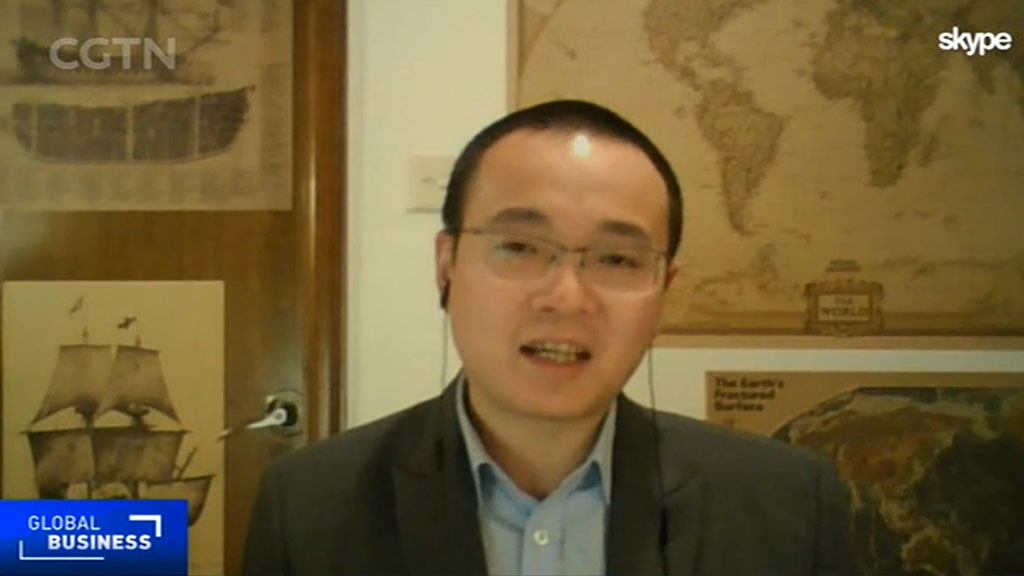00:51

China's second-hand resale market is growing fast, with sales of such goods estimated to reach one trillion yuan (142 billion U.S. dollars) by 2020. But according to a commentator, the potential for further growth remains huge for the nascent industry.
Chen JiaHe, chief investment officer of Novem Arcae Technologies, a wealth management firm in Beijing, told CGTN Global Business that there is plenty of room for growth given the fact that China's overall economic growth is still behind other developed economies such as the U.S. and European countries.
"China is just entering the period of people beginning to get rid of their second-hand items, which means there's still huge potential in this market," said Chen, noting that Chinese per capita GDP is only one-fifth of that of Europe.

Chen JiaHe, chief investment officer of Novem Arcae Technologies, says the potential for the resale market in China is huge. /CGTN Photo
Chen JiaHe, chief investment officer of Novem Arcae Technologies, says the potential for the resale market in China is huge. /CGTN Photo
He said that the second-hand market takes time to develop, and popular local second-hand online platforms such as Zhuanzhuan and Xianyu (Idle Fish) are now competing on building a user base rather than profit.
"They are not seeking profits right now. They are trying to be the leading company because when you grab that position, the future profit will come itself," he said.
There are 76 million second-hand shoppers in 2017, and the number reached over 100 million in 2018, up 55 percent. The two biggest Chinese resale apps Zhuanzhuan and Xianyu achieved 53 and 46 million downloads in the first quarter of 2018.
Monthly active users on e-commerce platforms in China grew 46.4 percent in 2018, almost double the growth rate of the users in the overall e-commerce sector, according to U.S. research firm Nielson.
Commenting on the impact of the second-hand market on the overall market, Chen said that it will always be a good supplementary market.
"It can't replace it. I'd be surprised if (it) could reach 10 percent. Furthermore, it's good for the environment. No economy will develop well if you waste," added Chen.